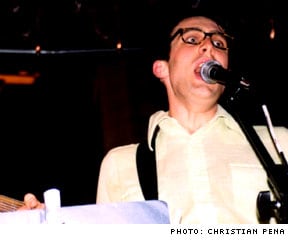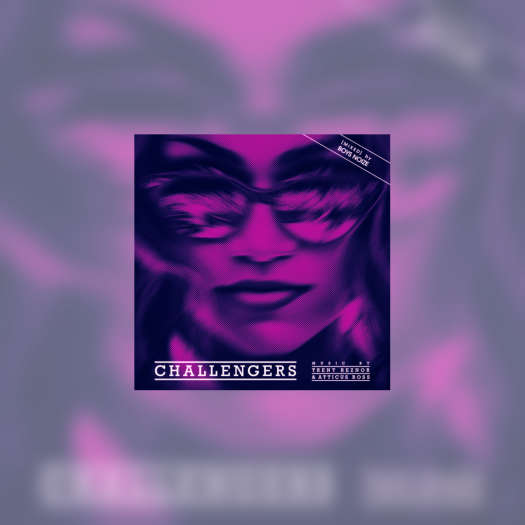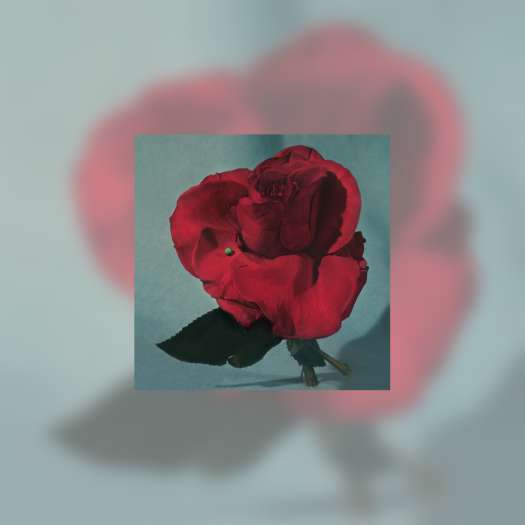"Actually, no one asks me about my songs," says Joel Gibb, a suggestion of disappointment betrayed in his soft-spoken voice.
The founder, front-man and visionary of the Hidden Cameras isn't seeking sympathy, nor is he trying to pre-emptively absolve himself of celebrity guilt for the rapid rise of his extraordinary band. But his revelation does beg the question: When does the honour of being declared a phenomenon begin to lose its appeal? Evidently, when it threatens to eclipse the work that made a phenomenon of you in the first place.
Make no mistake, the Hidden Cameras are a phenomenon in their native Toronto. Possibly no other unsigned band has been the subject of so much ecstatic local press over a year before there was any music to buy or the object of so much uncontained adoration from audiences, who continue to flock in growing numbers to the sprawling collective's convention-defying performances (Smiling! Mass sing-alongs! Balaclava-clad male go-go dancers!) at a selection of convention-defying venues (Churches! Porn cinemas! Leftist political rallies!).
Conceptually, the Hidden Cameras are irresistible, and Gibb's early summarisation of the band's sound as "gay folk church music" (a flip descriptor that has since become an albatross) is so ingeniously quotable that no publicist could have dreamt it.
But none of this should detract from the main event, which is that Gibb is a songwriter unlike any other: sacred and profane, mischievous yet heartfelt, homosexual but global, and uplifting in ways to which too little contemporary music can compare.
This is the criteria by which the Cameras will flourish or flounder in the as-yet-untapped world outside of Toronto, where the band's debut album, The Smell of Our Own, is being released this month by legendary British indie Rough Trade. (Gibb's own Evil Evil imprint retains it for Canada, distributed by Outside.) Fortunately, the album more than rises to the challenge, its ten songs swathing Gibb's fascinating, idiosyncratic worldview in richly orchestrated wall-of-sound melodies as immediate as nursery rhymes. It speaks volumes about the songs' broad appeal when Rough Trade's London publicist says that his toddler-aged children can't stop playing "Ban Marriage," a rollicking, tongue-in-cheek criticism of the campaign for legalised gay unions.
"In terms of lyrics, I definitely know what I don't want to write about," says Gibb. "I don't want to be vague or obtuse or unemotional. I like words that evoke images; there's a certain type of lyric that is just so aggravating because it doesn't create an image in your head, it doesn't create a feeling. That said, Ban Marriage' you can't hear, really, what the words are, but it's catchy. You have a choice whether you want to investigate or not."
That choice is crucial to ensuring that the Cameras an informal, ever-changing assembly of up to 15 men and women, homo and hetero aren't consigned to a gay-pop ghetto, despite the songs' often explicitly honest accounts of gay male relationships. (The album opens and closes with allusions to erotic urination, but does so using such a masterful command of language that the act sounds romantic, almost spiritual.)
"To me, the gay community is just a little microcosm of the rest of the world," says Gibb. "So it's not like I'm trying to represent homosexuals; it's trying to use gay experience as a universal metaphor."
Initial reactions to The Smell of Our Own and the U.K.-only Ban Marriage EP indicate that the Hidden Cameras are about to become a larger phenomenon than Toronto's true believers, and Gibb himself, could have anticipated. And it serves as a brilliant opening chapter to a career that the singer admits was developed in response to the question: "What do I want to do with my life?"
"You can't do this half-assed," he says, insistently. "Everything has to be extreme, everything has to be special."
The founder, front-man and visionary of the Hidden Cameras isn't seeking sympathy, nor is he trying to pre-emptively absolve himself of celebrity guilt for the rapid rise of his extraordinary band. But his revelation does beg the question: When does the honour of being declared a phenomenon begin to lose its appeal? Evidently, when it threatens to eclipse the work that made a phenomenon of you in the first place.
Make no mistake, the Hidden Cameras are a phenomenon in their native Toronto. Possibly no other unsigned band has been the subject of so much ecstatic local press over a year before there was any music to buy or the object of so much uncontained adoration from audiences, who continue to flock in growing numbers to the sprawling collective's convention-defying performances (Smiling! Mass sing-alongs! Balaclava-clad male go-go dancers!) at a selection of convention-defying venues (Churches! Porn cinemas! Leftist political rallies!).
Conceptually, the Hidden Cameras are irresistible, and Gibb's early summarisation of the band's sound as "gay folk church music" (a flip descriptor that has since become an albatross) is so ingeniously quotable that no publicist could have dreamt it.
But none of this should detract from the main event, which is that Gibb is a songwriter unlike any other: sacred and profane, mischievous yet heartfelt, homosexual but global, and uplifting in ways to which too little contemporary music can compare.
This is the criteria by which the Cameras will flourish or flounder in the as-yet-untapped world outside of Toronto, where the band's debut album, The Smell of Our Own, is being released this month by legendary British indie Rough Trade. (Gibb's own Evil Evil imprint retains it for Canada, distributed by Outside.) Fortunately, the album more than rises to the challenge, its ten songs swathing Gibb's fascinating, idiosyncratic worldview in richly orchestrated wall-of-sound melodies as immediate as nursery rhymes. It speaks volumes about the songs' broad appeal when Rough Trade's London publicist says that his toddler-aged children can't stop playing "Ban Marriage," a rollicking, tongue-in-cheek criticism of the campaign for legalised gay unions.
"In terms of lyrics, I definitely know what I don't want to write about," says Gibb. "I don't want to be vague or obtuse or unemotional. I like words that evoke images; there's a certain type of lyric that is just so aggravating because it doesn't create an image in your head, it doesn't create a feeling. That said, Ban Marriage' you can't hear, really, what the words are, but it's catchy. You have a choice whether you want to investigate or not."
That choice is crucial to ensuring that the Cameras an informal, ever-changing assembly of up to 15 men and women, homo and hetero aren't consigned to a gay-pop ghetto, despite the songs' often explicitly honest accounts of gay male relationships. (The album opens and closes with allusions to erotic urination, but does so using such a masterful command of language that the act sounds romantic, almost spiritual.)
"To me, the gay community is just a little microcosm of the rest of the world," says Gibb. "So it's not like I'm trying to represent homosexuals; it's trying to use gay experience as a universal metaphor."
Initial reactions to The Smell of Our Own and the U.K.-only Ban Marriage EP indicate that the Hidden Cameras are about to become a larger phenomenon than Toronto's true believers, and Gibb himself, could have anticipated. And it serves as a brilliant opening chapter to a career that the singer admits was developed in response to the question: "What do I want to do with my life?"
"You can't do this half-assed," he says, insistently. "Everything has to be extreme, everything has to be special."




